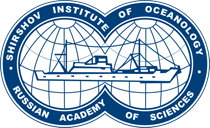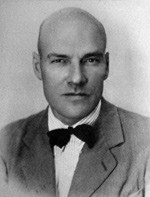Bruevich Semen Vladimirovich (1894-1971, St. Petersburg), hydrochemist, DSc (Chemical Sciences) (1936), Professor (1939), Laureate of the State Prize (1951,1977), Honored Scientist of the RSFSR, from 1946 to 1965 - Head of the Chemical Department
He was born in a family of educators. In 1911 he entered the Chemical Department of the Moscow Higher Technical School. In 1917 he graduated from the School with the title of a process engineer for the chemical technology of fibrous substances and works as a process engineer at the cotton factory of the Danilov manufactory. In 1919, he transferred to the Moscow Sanitary Station (hereinafter - F.F. Erisman Moscow Sanitary Institute), where he headed the hydrochemical laboratory.
In 1921 he was invited as a chemist to the 1st polar expedition on the "Malygin" icebreaker to the White, Barents and Kara Seas. During this period, he and his team developed fundamental questions - the methodological foundations of sea chemistry and created the manual "Methodology of Chemical Oceanography" (1933).
In 1932 he transferred to the All-Union Institute of Marine Fisheries and Oceanography.
In 1936, he was awarded the degree of Doctor of Chemistry without defending a dissertation, and in 1939 he was approved as a professor of hydrochemistry.
In 1943, under his leadership, the first comprehensive survey of the Caspian was carried out using a unified method and a wide range of observations: meteorology, hydrology, chemistry, geology, biology, including microbiology. At the same time, standard stations were organized and regular seasonal observations began at the so-called "secular sections".
In 1946 he transferred to the Institute of Oceanology of the Academy of Sciences of the USSR, where until 1965 he headed the Chemical Department. In 1949 he headed the first "Vityaz" voyage in the Black Sea, for which he was awarded the title of State Prize Laureate (1951).
Years of work in the Institute of Sociology of the Academy of Sciences of the USSR is the time of his broadest coverage of various research objects and various problems of the chemistry of the seas and oceans. This is a summary of the hydrochemistry of the White, Barents, Aral, Black, Okhotsk and Bering Seas and, finally, a generalization of the hydrochemistry of the Pacific Ocean. The works of this last period on the chemical balance of the oceans and the exchange between salt and gas components between the ocean and the atmosphere are also interesting.
He unconventionally understood the chemistry of the ocean and presented it as a complex science that studies the chemical properties of the waters of the seas and oceans, the atmospheric drive layer, the upper layer of bottom sediments (chemical statics) and, most importantly, the biochemical, physicochemical and chemical processes occurring in them (chemical dynamics). He introduced the concept of "biohydrochemistry" as an area of hydrochemistry that studies a group of chemical elements, "which play a major role in the construction and creation of living matter."
He was the author of more than 200 published scientific papers.
Laureate of state prizes: 1951 - State Prize of the USSR (Stalin Prize) in the field of science of the 2nd degree (geological and geographical sciences) - for oceanological research, as part of the team of authors; 1977 - USSR State Prize in the field of science and technology - for the 10-volume monograph “The Pacific Ocean” (1966-1974), as part of the team of authors.
In accordance with the Decree of the Presidium of the Supreme Soviet of the USSR of November 17, 1949, the Presidium of the Supreme Council of the USSR on September 19, 1953 was awarded the Order of Lenin for long service and excellent work.
For work during the war he was awarded the medal "For Valiant Labor in the Great Patriotic War of 1941-1945."




